Stop using landmines
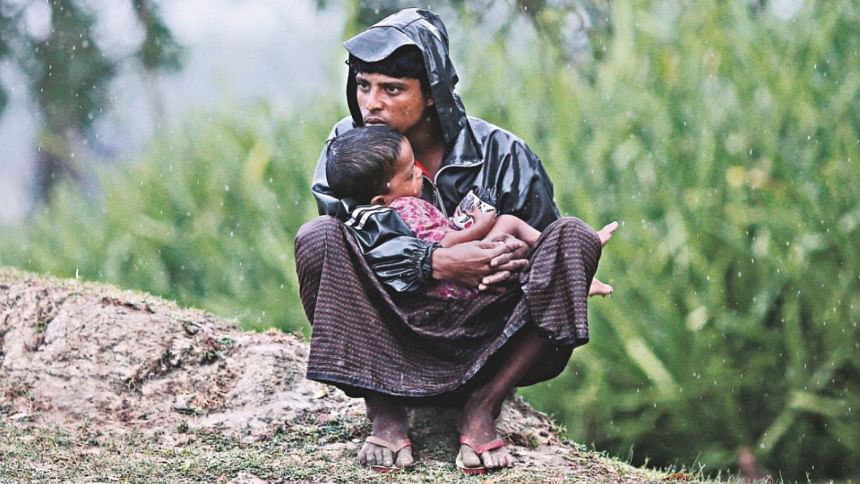
Nine out of the 14 states and regions in Myanmar are contaminated with landmines, making it the world's third most landmine-contaminated country, behind Afghanistan and Colombia. The telling statistic was revealed by Fortify Rights, a US-based rights group.
A human rights group has asked Myanmar military and ethnic armed groups to immediately cease using antipersonnel landmines that terrorised, maimed and killed civilians in Rakhine and other states of Myanmar.
Fortify Rights, which works in Southeast Asia, also demanded that Myanmar ratifies the 1997 Mine Ban Treaty.
It said that since August, Fortify Rights and others, documented how the Myanmar military laid antipersonnel landmines in northern Rakhine state, resulting in the deaths and maiming of Rohingya civilians fleeing a military-led attack.
Over 607,000 Rohingya have fled to Bangladesh since the Myanmar army began its "clearance operations" in response to the coordinated killings of Myanmar security personnel by the Arakan Rohingya Salvation Army on August 25 this year.
Also, on October 20, two ethnic Ta'ang civilians died from injuries sustained by landmines, Kachin Independence Army (KIA), an ethnic armed-group operating in Kachin State and parts of Shan State, told Fortify Rights. They also added the KIA uses antipersonnel landmines as well.
In September 2016, the rights group said Myanmar's Deputy Minister of Defence, Major General Myint Nwe, admitted its army continued to use landmines in armed conflicts in the country.
Myanmar leaders say they use landmines to safeguard the life and property of people and in self-defence.
In April 2016, the United Nations Secretary General attributed half of the child casualties of war in Myanmar to landmines and other explosive remnants of war.
"Landmines are indiscriminate and dangerous during and after armed conflict," said Matthew Smith.
"Armed groups should listen to the communities they claim to be protecting and stop using these weapons."
Myanmar, KIA, and other ethnic armed-groups are bound by customary international humanitarian law to avoid indiscriminate attacks on civilians.
"Displaced communities can't return home until the peace process improves and they can't do it safely until mines are cleared," Matthew Smith said.
PRESIDENT ASKS UN TO MOUNT PRESSURE ON MYANMAR
Describing the Rohingya influx as a big burden for Bangladesh, President Abdul Hamid yesterday urged the UN and other international agencies to continue mounting pressure on Myanmar to take back its forcefully displaced people from Bangladesh, reports UNB.
"The Rohingya crisis is a big problem for Bangladesh as it's one of the most densely populated countries in the world. Over one million forcefully displaced Rohingyas from Myanmar are now staying here and it's a big burden for us," he told outgoing UN Resident Coordinator to Bangladesh, Robert D Watkins, as he met the President at the Bangabhaban.
The President's Press Secretary Joynal Abedin briefed reporters after the meeting.
President Hamid sought continuous support from them to repatriate the displaced Rohingyas with dignity.
He thanked the UN for helping Bangladesh achieve its Millennium Development Goals' (MDGs) targets and hoped that it will continue supporting the country in attaining the Sustainable Development Goals.
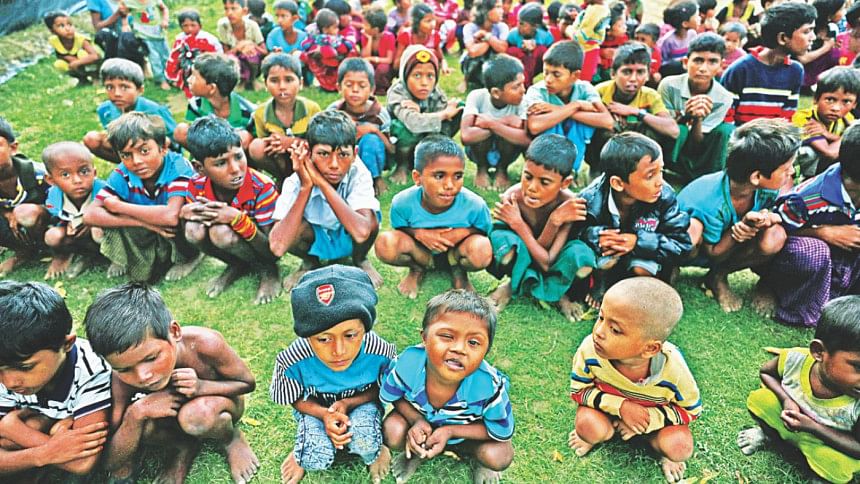
Robert D Watkins assured that the UN will continue its support to Bangladesh.
He also hailed the role of Bangladesh over the Rohingya issue, and assured UNDP will provide all-out support, including technical assistance, to the Election Commission of Bangladesh to strengthen its capacity.
FOUR ROHINGYA DIED
Four Rohingya refugees died after a boat carrying a group of Rohingya fleeing violence in Myanmar capsized in the Bay of Bengal early yesterday, reports our correspondent in Cox's Bazar.
The deceased are Enamul Hasan, 4, Minara Begum, 5, Jahura Begum 60 and Sirajul Islam, 19.
The boat capsized at Baillakhali point of Rajapalong union in Ukhia of Cox's Bazar at around 6:00am, said Upazila Nirbahi Officer Md Nikaruzzaman.
Members of police, coast guard, fire service and district administration jointly rescued 33 passengers of the boat. Ten of the injured survivors were sent to local hospitals for treatment, while 23 others to Kutupalong Rohingya settlement.
Survivor Ostambor Ali, 19, said he left his home at Yong Chong village of Buthidaung of Rakhine and reached Garzandia, on the eastern side of Naf River of Myanmar two days back. He boarded the Bangladeshi fishing trawler with around 40 other Rohingyas at 2:00 am Tuesday.
He claimed that just before reaching the shore, the boatman sank the trawler into the river. Another survivor Mujibor Rahman, 18, said the boat capsized due to big waves of the river.
Upazila Nirbahi Officer of Ukhia Nikaruzzaman said they buried four bodies yesterday following the direction of higher authorities.
WATER, SANITATION REMAINS MAJOR CHALLENGE
UN Migration Agency, IOM, said the Rohingya settlements are dangerously congested and overcrowded, while the pressure on sources of clean drinking water and basic sanitation are enormous.
"All of the spontaneous and makeshift sites where the Rohingya have sought shelter are in urgent need of water, sanitation and hygiene support to prevent diseases and to restore basic human dignity," says Antonio Torres, IOM's expert on water, sanitation and hygiene.
"Existing WASH facilities are not yet sufficient to cope with this number of people."
Of an estimated 750,000 people initially targeted for WASH assistance, some 530,000 have now been reached. Over the next six months, some 1.166 million people in Cox's Bazar settlements and host communities will need assistance.
EU COMMISSIONER VISITS ROHINGYA CAMP
European Union Commissioner for Humanitarian Aid and Crisis Management Christos Stylianides, meanwhile, began a two-day visit to Bangladesh, particularly to assess the situation in the Rohingya settlement.
"Here in Bangladesh, the scale of this emergency is painfully clear to see; this is the fastest-growing refugee crisis in the world," he said in a statement after visiting Kutupalong Rohingya settlements.
"The Rohingya people are not alone in these difficult times... European Union continues to insist on full aid access in Myanmar and is working to address the situation in Northern Rakhine," said Stylianides.
It is crucial that every refugee is registered properly and that Myanmar takes all necessary steps to allow them a voluntary and dignified return in secure conditions, said Commissioner Stylianides.
EU and its member countries pledged more than 50 percent of the USD 344 million funding raised at the international Conference in Geneva recently, he said.
Australia, meanwhile, yesterday announced a further 10 million Australian dollars to support the humanitarian needs of the Rohingyas, bringing the total Australian fund for the Rohingyas to 30 million Australian dollars.
US DELEGATION ARRIVES TODAY
Simon Henshaw, acting assistant secretary of US State for the Bureau of Population, Refugees, and Migration, is leading a delegation to Bangladesh today to discuss ways to address the humanitarian situation stemming from the Rakhine state crisis.
The delegation visited Myanmar from October 29. During Henshaw's visit to Bangladesh until November 4, he will meet senior government officials, donors, and humanitarian agencies.
The delegation will also visit affected communities in Cox's Bazar to assess the impact of the emergency humanitarian response, identify gaps in assistance, and advise on ways to improve the delivery of humanitarian assistance.

 For all latest news, follow The Daily Star's Google News channel.
For all latest news, follow The Daily Star's Google News channel. 

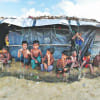
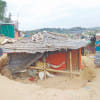
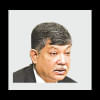
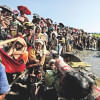


Comments